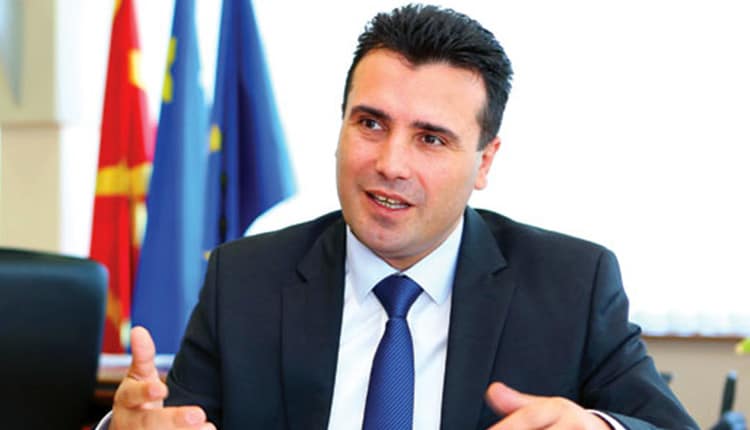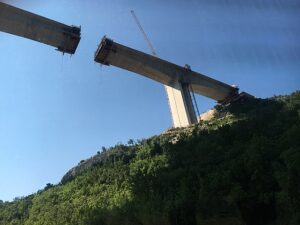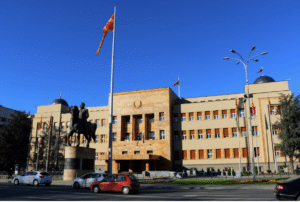While EU and NATO member states have congratulated the agreement between the neighbors Macedonia and Greece over Macedonia’s name, protests are erupting by the far-right and others in both countries. With the fate of the deal depending on a popular referendum in Macedonia in autumn, the government will have to work hard to convince the public to vote in favor of the deal.
On June 12, the Prime Ministers of Greece and Macedonia agreed on the name Republic of North Macedonia (‘Severna Makedonija’ in Macedonian), which according to Macedonian Prime Minister Zaev preserves the Macedonian identity while making a clear distinction with the Greek province bearing the same name. Since the collapse of Yugoslavia in 1991 and the establishment of an independent state, Greece repeatedly brought forward the argument that ‘Macedonia’ is an exclusive term for its northern province and that any foreign use could imply territorial ambitions on behalf of that country. Since 1993, Macedonia has been referred to by its transitional name, the Former Yugoslav Republic of Macedonia, and has not been able to accede either the EU or NATO.
First Steps to Ratification
After the deal was sealed by Macedonian Prime Minister Zaev and his Greek counterpart, Alexis Tsipras, more steps have had to be taken in order to guarantee its implementation. First, Macedonia’s Parliament was left to either approve or disapprove of the agreement; 69 of 120 MPs ratified the deal, passing it.
Next, it is now up to Macedonia’s President Gjorge Ivanov to give his approval, which he on June 26 announced to refuse, handing the deal back to the parliament to resume the debate. “I do not accept ideas or proposals which would endanger Macedonia’s national identity, the individuality of the Macedonian nation, the Macedonian language and the Macedonian model of coexistence,” Ivanov said in a press release. But the President’s power is limited, and if the Parliament decides to pass the bill a second time, the President will be legally obliged to sign it. While it has been pointed out that there is no formal deadline for Ivanov to do so, others have noted that Ivanov’s term expires in early 2019.
A Risky Referendum as the Final Step
As the decision to change Macedonia’s name is effectively a change of constitution, the bill must finally be put to a popular referendum which has been scheduled for September. While most analysts do not find it likely that the parliament will reject the deal after having approved of it once, the referendum indeed constitutes a hurdle that has to be tackled. Zaev is now starting to campaign for the referendum, and is using social and digital media to advertise the deal. “Macedonian language – protected and strengthened, once and for all, at home and abroad. Macedonian identity, Erga Omnes [for all uses],” he posted on Facebook. In an interview with Macedonia’s 1TV, Zaev announced that he would step down as Prime Minister if the referendum was to fail. “But I am sure that it will succeed,” he continued. “I expect a serious percentage, 75-85 per cent [to support it], in line with the percentage of citizens’ support for EU and NATO [accession].” The EU had previously on June 27 announced it would not yet provisionally start accession talks with Macedonia, but wait for another year. Zaev had pushed for the deal to be ratified quickly, as he had hoped the EU would launch accession talks, giving the Macedonian people a tangible reason to vote in favor during the referendum.
In the current state of affairs, opponents of the deal have been voicing their opinions more loudly than supporters, and have organized protests all over Macedonia. On 17 June, not even a week after the deal was announced, a protest erupted on the initiative of sports fans, and turned violent when nationalists and other right-wing supporters joined in. By the end of the night, nine people had been injured through rocks and flares, and 25 were arrested after trying to storm the parliament building. In another incident, the car of the father of a Macedonian MP of the Social Democrats was set of fire by unknown perpetrators, and the police claim that the attack had been motivated by opposition to the name deal.
Protests in Greece
Although the deal must not be put to any referendum in Greece, as it does not effectively trigger a change of the Greek constitution, opponents have nonetheless raised their voices and condemned the deal. In fact, the Thessaloniki police on June 25 employed tear gas to disperse protesters after these had attempted to break into the venue where the government was holding a session regarding the name deal. The name compromise Tspiras achieved faces great opposition within the parliament itself, and Kyriakos Mitsotakis, leader of Greece’s main opposition New Democracy party, said “any agreement to the ‘Macedonian language’ and ‘Macedonian ethnicity’ was ‘unacceptable’”. Worse even for Tsipras, Panos Kammenos, head of the ruling party’s junior partner The Independent Greeks, said that any name that still included the word “Macedonia” was an outright disgrace. Although the deal does not depend on the support of the Greek public, but solely on the Macedonian referendum in autumn, the Prime Ministers of both countries have aroused the anger of the public over an ethnic question. For some, the deal might even have opened emotional wounds, when it was in fact meant to open doors and leave the past behind.
Sources
Balkan Insight I Balkan Insight II Balkan Insight III Balkan Insight IV Balkan Insight V European Forum Image



